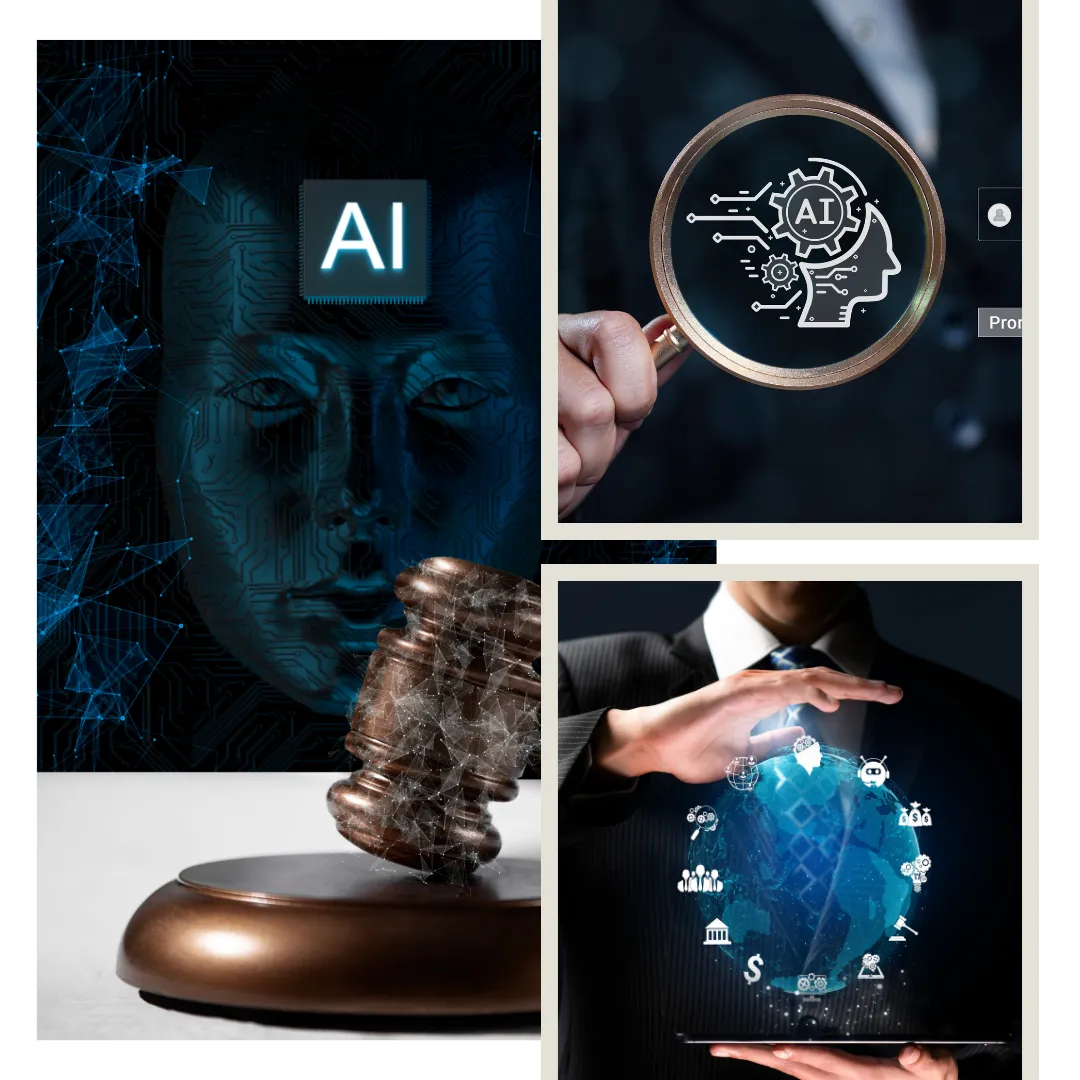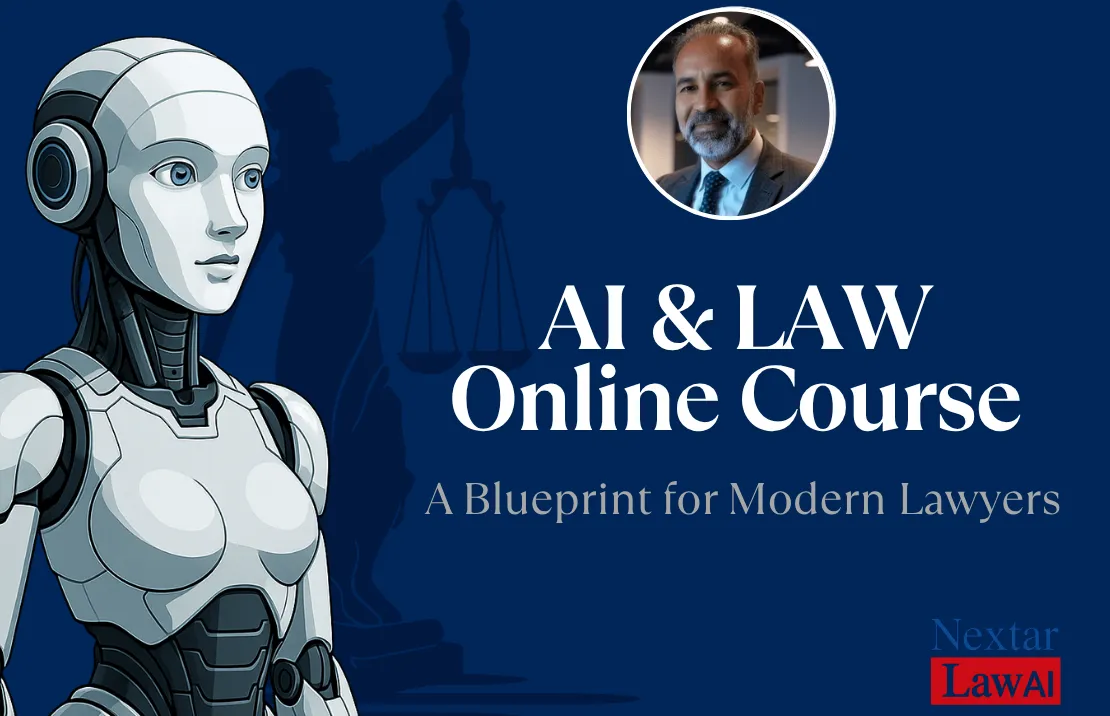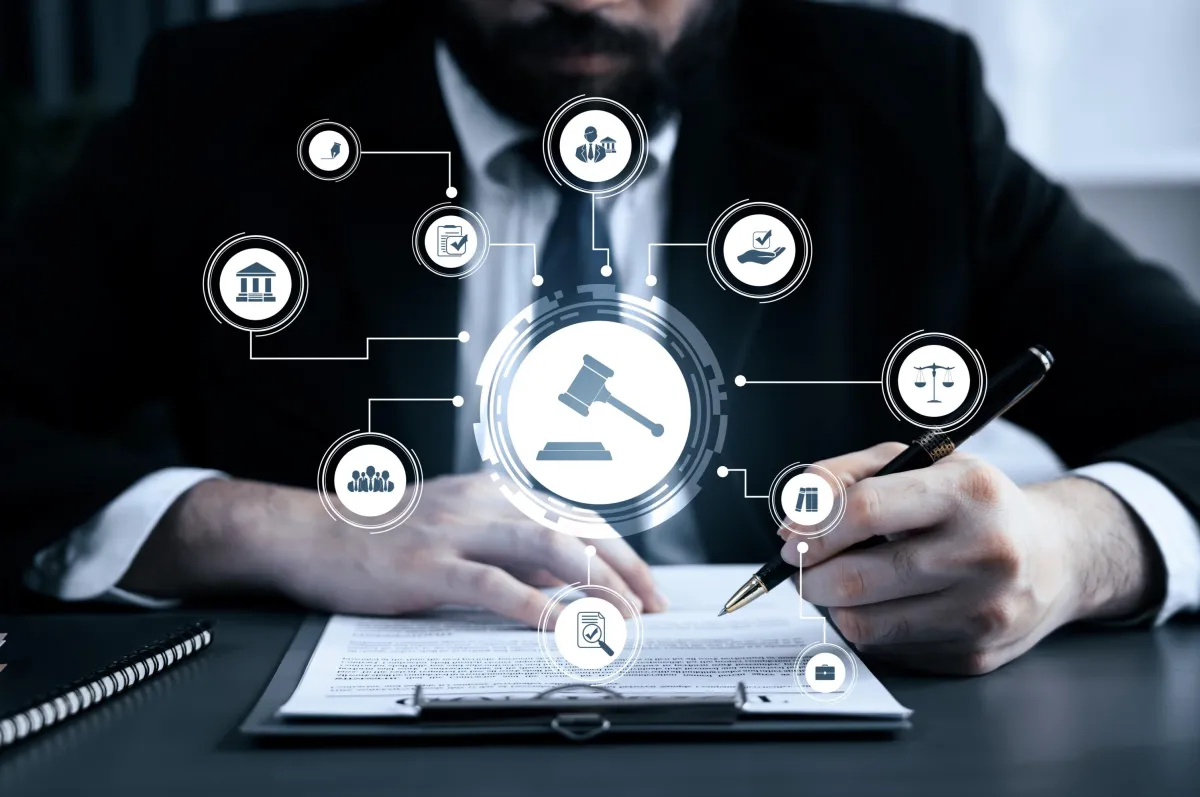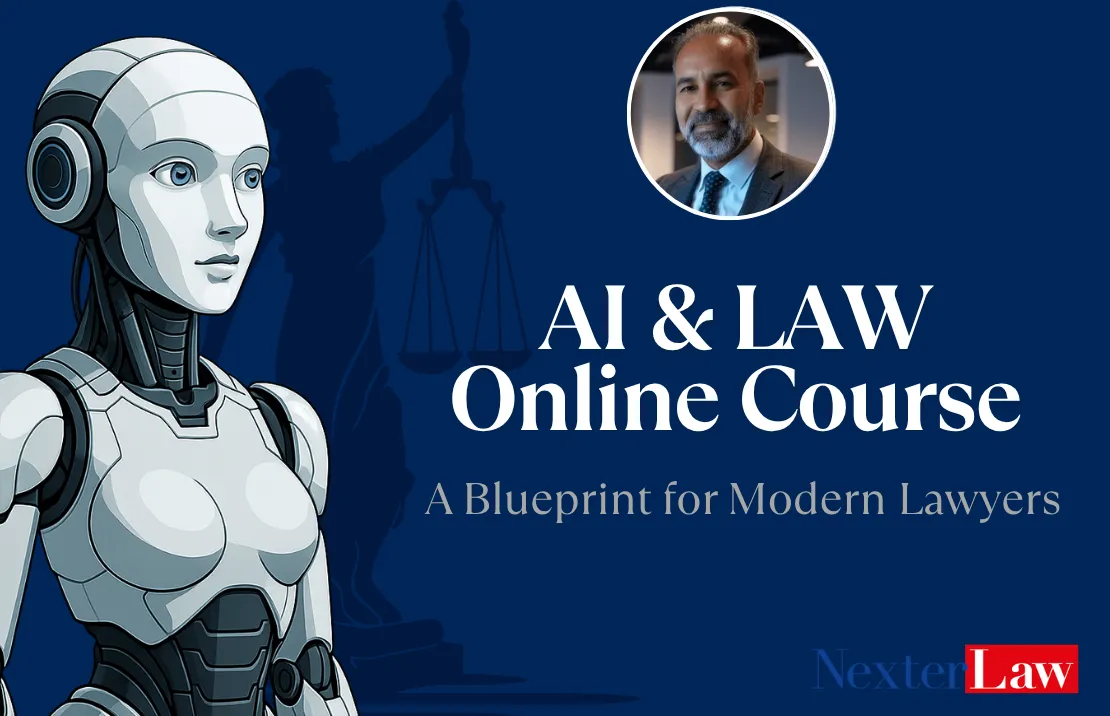Shaping the Future of Responsible AI
AI governance, ethics, and compliance solutions for businesses, governments, and innovators.
AI is powerful but without governance, it’s risky

AI is powerful but without governance, it’s risky
As AI integrates into decision-making, businesses and governments face increasing regulatory scrutiny. Ethical AI is no longer optional it’s essential for compliance, trust, and innovation.
☞ AI Regulations Are Here – Stay compliant with global AI laws (EU AI Act, US AI Bill of Rights).
☞ Bias & Transparency Issues – Ensure fair, responsible, and accountable AI development.
☞ Future-Proof Your AI – Build AI systems that are ethical, compliant, and scalable.
Master the Legal Future of AI
Three expert-designed courses to help you master AI ethics, legal challenges, and policy innovations at your own pace.

AI & Law Online Course
$9

Responsible AI Online Course
$9

Who Owns Intelligence Online Course
$9
WHAT WE OFFER
Comprehensive AI Governance Solutions

AI Ethics & Governance Consulting
Provide clients with comprehensive career assessments to identify their strengths, interests, and goals. Offer personalized career planning sessions where you help clients define their career path, set achievable goals, and develop action plans to reach them.

AI Risk Assessment & Bias Audits
Assist clients in crafting professional resumes and optimizing their LinkedIn profiles. Offer services to highlight their skills and achievements, making them stand out to potential employers. Provide resume templates or samples as resources.


Regulatory Compliance & AI Law Advisory
Conduct mock interview sessions to help clients improve their interviewing skills. Offer feedback on their responses, body language, and overall interview performance. Share tips and strategies for handling different types of interviews, including behavioral and technical interviews.

AI Governance Strategy Development
Develop a tailored job search strategy for each client, including guidance on networking, utilizing job search platforms, and targeting specific industries or companies. Provide resources and templates for cover letters, thank-you notes, and follow-up emails.


Government & Public Policy Advisory
Conduct mock interview sessions to help clients improve their interviewing skills. Offer feedback on their responses, body language, and overall interview performance. Share tips and strategies for handling different types of interviews, including behavioral and technical interviews.
Facing Legal Questions?
Let’s Find Clear Answers Together
Whether you're facing a legal challenge or planning ahead, our experts are here to help. Get personalized advice tailored to your needs no pressure, just clarity.
Book a Free Consultation Today!
Let’s turn your questions into confident decisions.
Stay Ahead of AI Regulation Changes
Live Regulation Updates
EU AI Act Updates
New compliance deadlines for AI developers.
March 2025
US AI Bill of Rights
White House releases new AI accountability guidelines.
Feb 2025
China’s AI Regulation
Stricter guidelines for deep fake technology.
Jan 2025
Become a Certified AI Ethics Professional
Develop expertise in AI governance, compliance, and responsible AI practices. Our certification programs are designed for professionals, compliance officers, and businesses looking to lead in ethical AI.
AI Ethics in Action Lessons from Real World Cases

AI Human Rights In Nigeria
AI and Human Rights in Nigeria: Balancing Innovation with Ethical Responsibility
AI Human Rights In Nigeria
AI and Human Rights in Nigeria: Balancing Innovation with Ethical Responsibility
Introduction
Artificial Intelligence (AI) is rapidly transforming economies, governance structures, and daily life across the globe. In Nigeria, this technological evolution holds immense promise—yet it also presents complex challenges, particularly in the domain of human rights. As the Nigerian government advances its National Artificial Intelligence Policy (NAIP), civil society, legal experts, and AI ethicists are raising vital questions: How do we ensure AI serves the public good? What safeguards are in place to prevent misuse? And how do we prevent AI from exacerbating existing inequalities?
This article dives deep into the intersection of AI and human rights in Nigeria, offering a comprehensive look at emerging regulations, real-world applications, ethical dilemmas, and the urgent need for a rights-based approach to AI governance.
Key Human Rights Concerns in AI Deployment
Right to Privacy
AI systems often rely on large datasets, including personal and biometNigeria’s Growing AI Landscape
Nigeria has positioned itself as a rising digital power in Africa, fueled by a thriving tech sector and increasing investments in AI innovation. Spearheaded by the Federal Ministry of Communication, Innovation, and Digital Economy (FMCIDE), initiatives are underway to harness AI for development while simultaneously preparing citizens and businesses for its ethical use.
A cornerstone of this effort is the National Artificial Intelligence Policy (NAIP), which aims to guide the country’s AI journey. This policy emphasizes cybersecurity, data privacy, ethical use of personal information, and compliance with international human rights standards.
ric information. Without adequate safeguards, this can lead to widespread surveillance, unauthorized data collection, and erosion of individual privacy. In Nigeria, this is especially concerning in contexts like facial recognition technologies used in policing, where marginalized communities are disproportionately affected.
Discrimination and Algorithmic Bias
AI’s reliance on historical data means that it can replicate—and even magnify—societal biases. In hiring, law enforcement, and credit scoring, biased algorithms can reinforce discrimination against women, ethnic minorities, or low-income groups. Nigeria’s lack of robust auditing frameworks for AI systems makes these risks more acute.
Accountability and Oversight
Currently, Nigeria’s legal frameworks struggle to keep up with the pace of AI deployment. This results in a gap in accountability, particularly for private sector actors deploying AI systems without transparent processes or ethical review mechanisms. The NAIP addresses this through proposals for external audits, liability frameworks, and public reporting.
Civil Society’s Crucial Role
Organizations like BudgIT and Enough is Enough (EiE) are leveraging technology to demand transparency and democratic accountability. These groups advocate for inclusive AI governance that centers on citizen rights, gender equity, and access to redress mechanisms when harms occur.
Case Studies from the Field
Facial Recognition in Policing
Deployments of facial recognition in Nigerian cities have led to wrongful arrests and raised alarms over mass surveillance. Without proper regulation, such technologies risk violating basic civil liberties.
AI in Rural Healthcare
In remote regions, AI tools have successfully enabled remote diagnostics, bridging gaps in medical access. For example, eye care diagnostic tools powered by AI have improved service delivery for underserved communities. These successes highlight AI’s potential to support the right to health when deployed responsibly.
Protecting Women’s Health Data
Women increasingly use AI platforms for healthcare services, yet data protection remains weak. Ethical use of AI must include robust privacy protections, especially for vulnerable groups.
Nigeria’s Regulatory Response
The NAIP outlines foundational principles for AI governance, including fairness, transparency, and accountability. Complementary to this is the Nigeria Data Protection Act (2023), which mandates clear consent protocols and safeguards for data use in AI systems.
To further bolster oversight, plans for a High-Level AI Ethics Expert Group (AIEEG) are in motion. This body would oversee compliance, address bias, and support algorithmic transparency—critical components for human-centric AI development.
Looking Ahead: Opportunities and Challenges
Nigeria ranks 103rd in the Oxford Insights 2023 AI Readiness Index. To climb into the top 50 by 2030, it must invest not only in infrastructure but in ethical AI design. Balancing economic growth with fundamental rights is possible—but only with intentional governance, global cooperation (e.g., with the EU AI Act or UN AI for Good), and continuous legal reform.
Conclusion
AI holds enormous potential for Nigeria, from healthcare to education and public safety. But the journey must be guided by a firm commitment to human rights. As Nigeria implements its National Artificial Intelligence Policy, it has a unique opportunity to become a leader not only in innovation but in ethical AI governance.
By embedding dignity, transparency, and fairness into the very fabric of its AI strategy, Nigeria can ensure that the future it builds is one that protects and uplifts every citizen.
References
- [DLA Piper Africa – AI in Nigeria](https://www.dlapiperafrica.com/en/nigeria/insights/2024/nigeria-ai-report-2024)
- [OAL Law – AI Regulation in Nigeria](https://oal.law/artificial-intelligence-ai-regulation-in-nigeria-key-considerations-recommendations-legal-framework-and-policy-development-for-artificial-intelligence-ai-in-nigeria/)
- [Dataphyte – Tracking Nigeria’s Policy Commitment to AI](https://dataphyte.com/latest-reports/tracking-nigerias-policy-commitment-to-ai/)
- [The Cable – AI and Human Rights](https://www.thecable.ng/the-role-of-artificial-intelligence-in-enhancing-or-eroding-human-rights/)
- [BudgIT – AI & Society in Nigeria](https://budgit.org/ai-society-and-the-nigerian-reality-a-match-made-in-data-heaven/)
Stay Ahead with NexterLaw
Be the first to know about legal trends, expert tips, and our latest services. We deliver real value – no spam, just smart insights and useful updates. Subscribe to our newsletter and stay informed, protected, and empowered.
We respect your inbox. Unsubscribe anytime.

COMPANY
Quick Links
Copyright 2025. Nexterlaw. All Rights Reserved.









